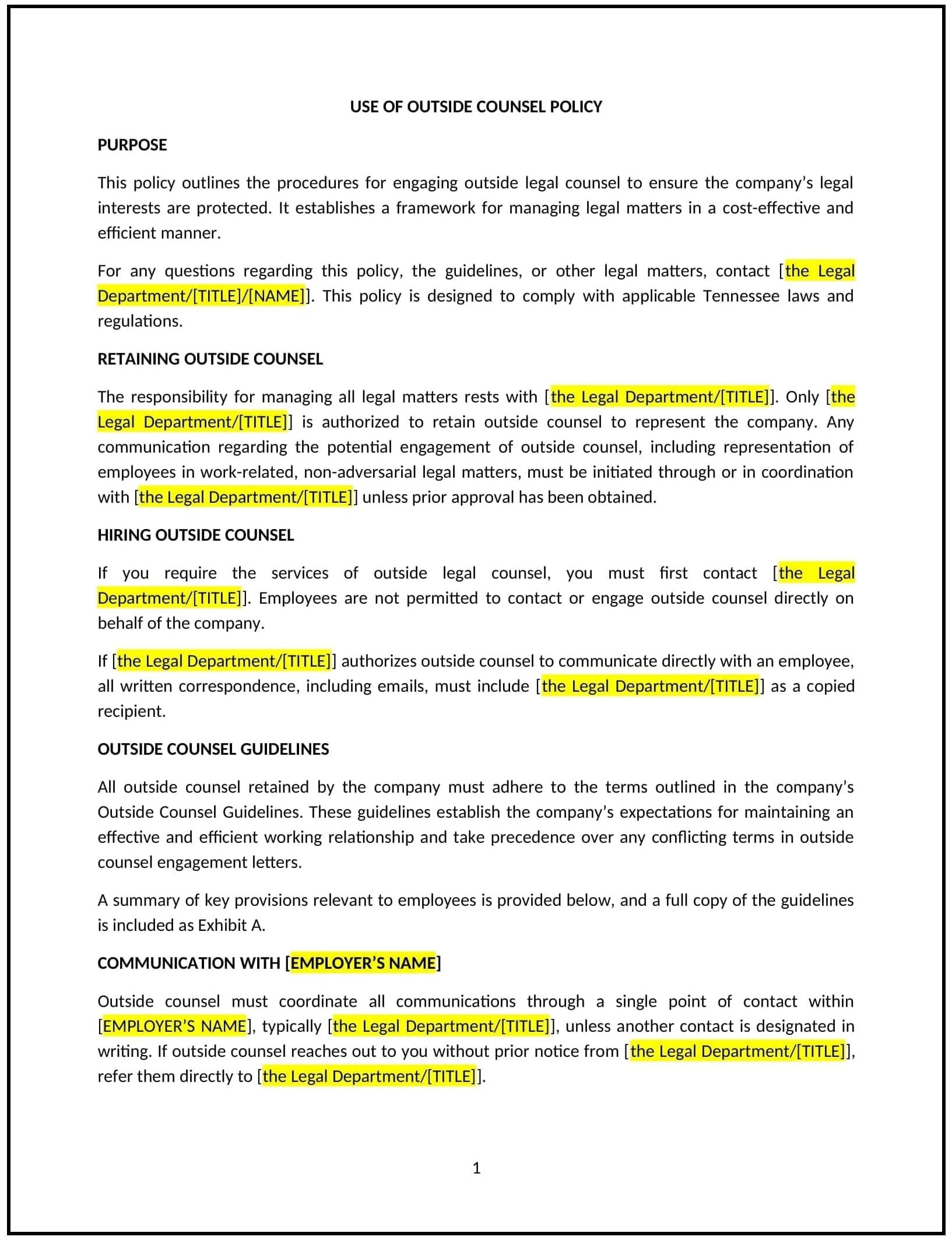Use of outside counsel policy (Tennessee): Free template
Got contracts to review? While you're here for policies, let Cobrief make contract review effortless—start your free review now.

Customize this template for free
Use of outside counsel policy (Tennessee)
This use of outside counsel policy is designed to help Tennessee businesses establish guidelines for engaging external legal counsel. It outlines procedures for selecting, managing, and compensating outside counsel to ensure cost-effectiveness and alignment with business needs.
By adopting this policy, businesses can manage legal expenses, maintain quality legal representation, and align with best practices for legal services.
How to use this use of outside counsel policy (Tennessee)
- Define selection criteria: Specify how outside counsel will be selected, such as through competitive bidding or referrals.
- Set engagement procedures: Outline steps for engaging outside counsel, including signing engagement letters and defining scope of work.
- Address billing guidelines: Provide rules for billing and invoicing, such as requiring detailed invoices and pre-approval for expenses.
- Monitor performance: Specify how outside counsel’s performance will be evaluated, such as through regular reviews or feedback.
- Train employees: Educate staff on the policy and their responsibilities when working with outside counsel.
- Review and update: Assess the policy annually to ensure it aligns with evolving business needs and legal requirements.
Benefits of using this use of outside counsel policy (Tennessee)
This policy offers several advantages for Tennessee businesses:
- Manages legal expenses: Ensures cost-effective use of outside counsel through clear billing guidelines and performance monitoring.
- Maintains quality representation: Ensures outside counsel meets the business’s legal needs and standards.
- Enhances transparency: Provides clear guidelines for engaging and managing outside counsel.
- Reduces risks: Minimizes the potential for disputes or inefficiencies in legal representation.
- Aligns with best practices: Supports a structured approach to managing legal services.
Tips for using this use of outside counsel policy (Tennessee)
- Communicate the policy: Share the policy with employees and include it in the employee handbook.
- Provide training: Educate staff on the policy and their responsibilities when working with outside counsel.
- Monitor compliance: Regularly review outside counsel engagements and invoices to ensure adherence.
- Address issues promptly: Take corrective action if outside counsel underperforms or violates billing guidelines.
- Update regularly: Assess the policy annually to ensure it aligns with evolving business needs.